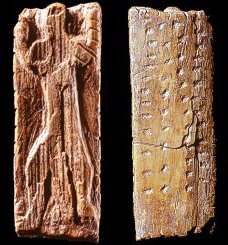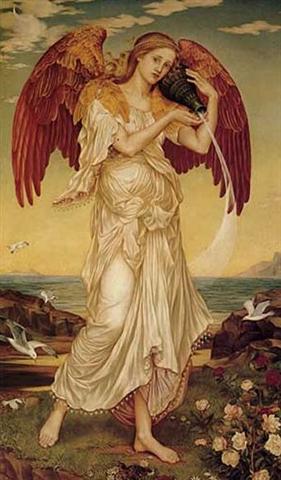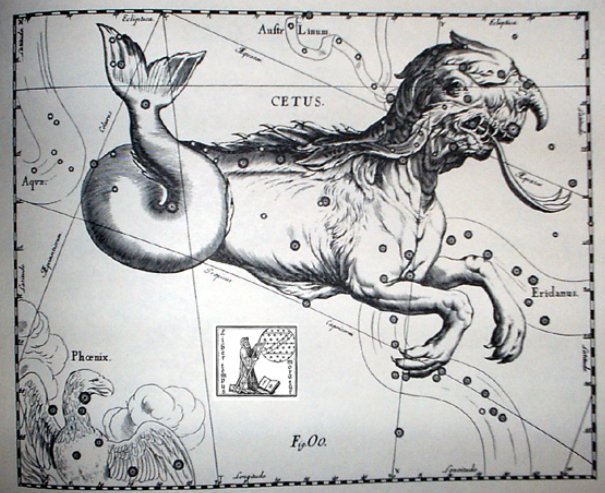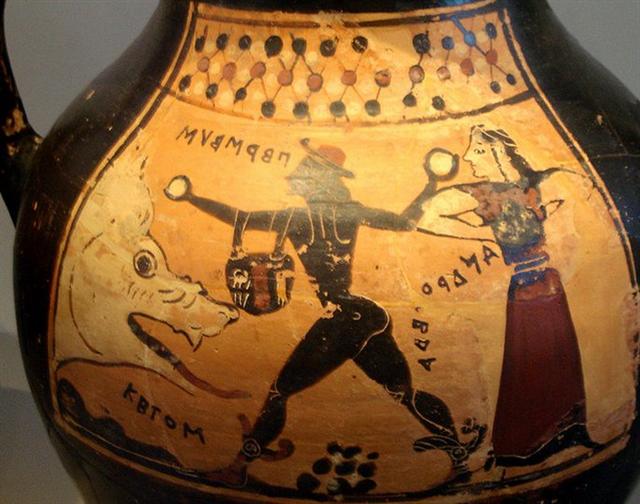Once again. On the path from Sirrah (*0.5) to
Bharani (*41.4) there were only 39 species of water yam
roots (uhi) brought from the house of
Maeha,
Ma'eha. Brightness, bright, to lighten, to
brighten up; ku ma'eha-á, it has already
lightened up. Vanaga. 1. Light, brightness; to
shine, to be bright, to glimmer, to glow; maeha
mahina, moonshine; maeharaa, sunrise.
Maehamaeha, bright. Hakamaeha, to
brighten. Mq.: maeoeo, bright, transparent.
2. To get out of the way. 3. Thin, slender, slight.
Churchill.
presumably because of a prehistoric
system like that documented on the mammoth ivory plate,
which had 39 notches for the border
line between the back side and the front side. 49
(back side) + 39 (awash in the surf).

| |
Te Takapau (*0) |
1 he tara kura |
2 he tara rau renga |
|
JAN 15 (380) |
16 (*301) |
17 |
18 (365 + 18 = 383) |
 |
 |
 |
 |
|
Gb6-25 |
Gb6-26 (408) |
Gb6-27 (229 + 180) |
6 * 28 = 2 * 84 → 2 * 314 |
|
θ Oct. (364.4)
*323.0 = *364.4 - *41.4 |
Al Fargh al Thāni-25 (Rear Spout)
0h (365.25)
CAPH
(Hand)
=
β
Cassiopeiae,
SIRRAH (Navel of the Horse)
=
α
Andromedae
(0.5),
ε
Phoenicis,
γ³
Oct.
(0.8) |
Uttara Bhādrapadā-27 (2nd of the
Blessed Feet) /
Wall-14 (Porcupine)
ο Oct. (1.3),
ALGENIB PEGASI
= γ Pegasi
(1.8) |
χ Pegasi (2.1), θ Andromedae (2.7) |
|
March 20 (79) |
Gregorian equinox |
22 (*366) |
23 |
|
°March 16 (*360) |
17 |
18 (77) |
19 |
|
'Febr 21 (365 + 52 = 417) |
22 (53 = 80 - 27) |
TERMINALIA |
*340 |
|
"Febr 7 (403 = 417 - 14) |
8
(39) |
9
(*325 = *366 - *41) |
10 |
|
At the time of
Bharani Sirrah rose heliacally in
day 39 = 88 - 49. |
|
CLOSE TO THE FULL MOON: |
|
JULY 17 (*118 = 198 - 80) |
18 |
19 (200) |
20 |
|
12h (182.6)
ο
Virginis (182.1),
η
Crucis (182.5) |
ALCHITA
=
α
Corvi,
MA WEI (Tail of the Horse)
=
δ
Centauri
(183.1),
MINKAR
=
ε
Corvi
(183.7),
ρ
Centauri (183.9) |
PÁLIDA (Pale) =
δ
Crucis
(184.6),
MEGREZ (Root of the Tail)
=
δ
Ursae Majoris
(184.9) |
GIENAH
(Wing) =
γ
Corvi
(185.1),
ε
Muscae (185.2),
ζ
Crucis (185.4),
ZANIAH
(Corner) =
η
Virginis
(185.9)
*144.0 = *185.4 - *41.4 |
|
Sept 19 |
20 (263 = 236 + 27) |
21
(*184) |
EQUINOX |
|
°Sept 15 |
16 |
17 (*180) |
18 (261) |
|
'Aug 23 |
24 (236 = 12 * 29½) |
25 (*157 = *314 /
2) |
26 |
|
"Aug 9 |
10 (222) |
11 (*143) |
12 |
|
TE UHI
- water yam roots: |
|
1 |
he tara |
kura |
a Maeha. a Teke |
|
2 |
rau renga |
|
3 |
mahihi |
|
4 |
maito |
|
5 |
nohu |
|
6 |
hetuke |
|
7 |
mama |
|
8 |
titeve |
|
9 |
moamoa tara |
|
10 |
huehue |
|
11 |
he makere |
|
12 |
he mariri |
|
13 |
he tonga |
|
10
he tara
huehue |
11
he makere |
12
he mariri |
13
he tonga |
|
... Teke said to
Oti, 'Go and take the hauhau
tree, the paper mulberry tree, rushes,
tavari plants, uku koko
grass, riku ferns, ngaoho
plants, the toromiro tree,
hiki kioe plants (Cyperus vegetus),
the sandalwood tree, harahara
plants, pua nakonako plants,
nehenehe ferns, hua taru
grass, poporo plants, bottle
gourds (ipu ngutu), kohe
plants, kavakava atua ferns,
fragrant tuere heu grass,
tureme grass (Diochelachne
sciurea), matie grass, and
the two kinds of cockroaches makere
and hata
... in related eastern Polynesian
languages these names can also be
explained on a different level. MAO.
makere, among others, 'to die', and
whata, among others, 'to be laid
to rest on a platform', deserve special
attention.
The theme hinted at is one of
death and burial ... |
|
JAN
26 |
27
(392) |
28 |
29
(*314) |
 |
 |
 |
 |
|
Gb7-8 (418) |
Gb7-9 (229 + 190) |
Gb7-10 (60 weeks) |
Gb7-11 (192) |
|
ACHIRD (Woman with Luminous Rays)
=
η Cassiopeiae
(10.7) |
Legs-15 (Wolf)
ν
Andromedae (11.0),
φ²
Ceti (11.1),
ρ
Phoenicis (11.2),
η
Andromedae
(11.4)
*336.0 = *377.4 - *41.4 |
CIH (Whip) = γ Cassiopeiae,
λ Tucanae (12.4), φ³ Ceti (12.6), μ
Andromedae (12.8)
*337.0 = *378.4 - *41.4 |
φ4 Ceti (13.2) |
|
March
31 (455) |
April
1 (91) |
2 |
3
(*378) |
|
°March 27 |
28 |
29 (88) |
30 (*374) |
|
'March 4 (428) |
5
(64) |
6
(*350) |
7 |
|
"Febr 18 (14 *
29½ + 1) |
19
(50) |
20 |
Te-hetu'u-pú 21 |

|
14 |
he pua rau hoho |
uri |
a Maeha. a Teke |
|
15 |
tea |
|
16 |
mea |
|
17 |
para |
|
18 |
tupere ure |
|
ADHIL (*19) |
|
20 |
ravi hakurakura |
|
21 |
naku |
|
22 |
takatore |
|
23 |
ravei |
|
24 |
he papa |
uri |
|
25 |
tea |
|
26 |
he papaki |
kahukahu |
|
27 |
vehivehi |
|
28 |
papa kura |
|
29 |
he mamari |
kioe |
|
30 |
he tutae |
|
31 |
he kunekune |
|
14
he pua rau hoho
uri |
15
he pua rau hoho
tea |
16
he pua rau hoho
mea |
17
he pua rau hoho
para |
18
tupere ure |
ADHIL (*19) |
|
Mea.
1. Tonsil, gill (of
fish). 2. Red (probably because it
is the colour of gills); light red,
rose; also meamea. 3. To grow
or to exist in abundance in a place
or around a place: ku-mea-á te
maîka, bananas grow in abundance
(in this place); ku-mea-á te ka,
there is plenty of fish (in a
stretch of the coast or the sea);
ku-mea-á te tai, the tide is low
and the sea completely calm (good
for fishing); mau mea,
abundance. Vanaga. 1. Red;
ata mea,
the dawn.
Meamea,
red, ruddy, rubricund, scarlet,
vermilion, yellow;
ariga
meamea, florid;
kahu
meamea purple;
moni
meamea, gold;
hanuanua meamea, rainbow;
pua
ei meamea, to make
yellow.
Hakameamea, to redden, to
make yellow. PS Ta.:
mea,
red. Sa.:
memea, yellowish brown,
sere. To.:
memea, drab. Fu.:
mea,
blond, yellowish, red, chestnut. 2.
A thing, an object, elements (mee);
e
mea, circumstance;
mea ke,
differently, excepted, save, but;
ra mea,
to belong;
mea
rakerake, assault;
ko mea,
such a one;
a mea
nei, this;
a mea
ka, during;
a mea,
then;
no te
mea, because, since,
seeing that;
na te
mea, since;
a mea
era, that;
ko mea
tera, however, but.
Hakamea,
to prepare, to make ready. P Pau.,
Mgv., Mq., Ta.:
mea,
a thing. 3. In order that, for.
Mgv.:
mea, because, on
account of, seeing that, since. Mq.:
mea,
for. 4. An individual;
tagata
mea,
tagata
mee, an individual. Mgv.:
mea,
an individual, such a one. Mq., Ta.:
mea,
such a one. 5. Necessary, urgent;
e mea
ka, must needs be,
necessary;
e mea,
urgent. 6. Manners, customs. 7.
Mgv.:
ako-mea, a red fish.
8. Ta.:
mea, to do. Mq.:
mea,
id. Sa.:
mea,
id. Mao.:
mea,
id. Churchill. |
|
JAN 30 |
31 (365 + 31) |
FEBR 1 (32) |
2 |
3
(399) |
4 (*320) |
 |
 |
 |
 |
 |
 |
|
Gb7-12 |
Gb7-13 |
Gb7-14 (196) |
Gb7-15 |
Gb7-16 |
Gb7-17 (427) |
|
no star listed (14) |
1h (15.2)
β Phoenicis (15.1), υ Phoenicis, ι
Tucanae (15.6), η Ceti, ζ Phoenicis
(15.7) |
Al Batn Al Hūt-26 (Belly of the
Fish) /
Revati-28 (Prosperous) /
1-iku (Field Measure)
MIRACH
(Girdle) =
β
Andromedae, KEUN MAN MUN (Camp's
South Gate) =
φ
Andromedae
(16.0),
ANUNITUM
=
τ
Piscium
(16.5),
REVATI
(Abundant) =
ζ
Piscium
(16.9)
REGULUS
(α Leonis) |
ν Phoenicis (17.4), κ Tucanae (17.6)
*342.0 = *383.4 - *41.4
= *159.0 + *183.0 |
no star listed (18) |
ADHIL (Garment's Train)
=
ξ
Andromedae
(19.3),
θ
Ceti (19.7) |
|
April 4 |
5
(460) |
6 |
7 |
8
(*383) |
9
(99) |
|
°March 31 |
°April 1 (91) |
2 (*377) |
3 |
4 |
5 (460) |
|
'March 8 |
9 |
10 (*354) |
11 |
12 |
13 (72) |
|
"Febr 22 (53) |
TERMINALIA |
24 (420) |
25 |
Te-hetu'u-pú
26 |
27 (58) |
|
CLOSE TO THE FULL MOON: |
|
AUG 1 |
2
(214) |
3
(*135) |
4 (*501) |
5 |
6 |
|
13h (197.8)
ξ¹ Centauri (197.1), ξ² Centauri
(197.9) |
APAMI-ATSA (Child of Waters)
=
θ
Virginis,
ψ
Hydrae (198.5),
DIADEM
=
α
Com. Ber.
(198.9) |
AL DAFĪRAH (Tuft)
= β Com. Ber.
(199.4)
*158.0 = *199.4 - *41.4 |
σ Virginis (200.4)
*159.0 = *200.4 - *41.4 |
γ Hydrae (201.0), ι Centauri (201.4)
*160.0 = *201.4 - *41.4 |
Al Simāk-12 (Lofty) /
Chitra-14 (Bright One) /
Horn-1 (Crocodile) /
Sa-Sha-Shirū-20
(Virgin's Girdle) /
ANA-ROTO-3 (Middle pillar)
MIZAR =
ζ
Ursae Majoris
(202.4),
SPICA
=
α
Virginis,
ALCOR
= 80 Ursae Majoris
(202.7)
SADALMELIK (α Aquarii)
*161.0 = *202.4 - *41.4 |
|
Oct 4 |
5 |
6 |
7
(280) |
8 |
9
(*202) |
|
°Sept 30 (273) |
°Oct 1 |
2 |
3 (*196) |
4 |
5 |
|
'Sept 7 |
8 |
9 |
10 (*173) |
11 (254) |
12 |
|
"Aug 24 (236) |
25 |
26 |
27 |
28 |
29 (*161) |

|
32 |
he tahe |
a Maeha. a Teke |
|
MIRA (*33) |
|
34 |
he taha |
|
35 |
he apuka |
|
36 |
he apuka heu |
|
37 |
he tuitui koviro |
|
38 |
he rai atea |
|
39 |
he rai atanga |
|
40 |
he ravi kana |
|
41 |
BHARANI (*41)
he ravi pako |
|
32 he tahe |
MIRA (*33) |
34 he taha |
35 he apuka |
|
...
Although an old
constellation, Cetus is by
no means of special
interest, except as
possessing the south pole of
the Milky Way and the
Wonderful Star, the variable
Mira; and from the fact that
it is a condensation point
of nebulae directly across
the sphere from Virgo, also
noted in this respect
...
...
Mira also known as
Omicron Ceti
(ο
Ceti, ο
Cet), is a red giant star
estimated 200-400 light
years away in the
constellation Cetus. Mira is
a binary star, consisting of
the red giant Mira A along
with Mira B. Mira A is also
an oscillating variable star
and was the first
non-supernova variable star
discovered, with the
possible exception of Algol.
Apart from the unusual Eta
Carinae, Mira is the
brightest periodic variable
in the sky that is not
visible to the naked eye for
part of its cycle ...
... In
1638 Johannes Holwarda
determined a period of the
star's reappearances, eleven
months; he is often credited
with the discovery of Mira's
variability. Johannes
Hevelius was observing it at
the same time and named it
'Mira' (meaning 'wonderful'
or 'astonishing,' in Latin)
in 1662's Historiola
Mirae Stellae, for it
acted like no other known
star. Ismail Bouillaud then
estimated its period at 333
days, less than one day off
the modern value of 332
days, and perfectly
forgivable, as Mira is known
to vary slightly in period,
and may even be slowly
changing over time
... |
|
FEBR 17 (14 * 29½) |
18
(414 = 365 + 49) |
19 (50) |
20 (*336 = 4 * 84) |
 |
 |
 |
 |
|
Gb7-30 (440 = 229 + 211) |
Gb7-31 (63 weeks) |
Gb8-1 |
Gb8-2 (214) |
|
ξ¹ Ceti (32.1) |
γ,
δ
Trianguli (33.0),
χ
Persei (33.2),
10 Trianguli
(33.5),
θ
Arietis (33.3),
MIRA
(Next to the Pleiades) =
ο
Ceti
(33.7) |
no star listed (34) |
ξ Arietis (35.0), ρ Ceti
(35.4),
12 Trianguli (35.8), ξ² Ceti (35.9)
*360.0 = *35.4 - *41.4 |
|
April 22 (477) |
23 (113) |
24 (*399) |
25
(115) |
|
°April 18 (473) |
19 (*29) |
20 |
21 (111) |
|
'March 26 (450) |
27 (*53 weeks) |
28 (*372) |
29 (88 = 115 - 27) |
|
"March 12 (436) |
13 (*51 weeks) |
3-14 (73) |
Tara-hao
15 |
|
Tara. 1. Thorn:
tara miro. 2. Spur:
tara moa. 3. Corner;
te tara o te hare,
corner of house; tara o
te ahu, corner of ahu.
Vanaga. (1. Dollar; moni
tara, id.) 2. Thorn,
spike, horn; taratara,
prickly, rough, full of
rocks. P Pau.: taratara,
a ray, a beam; tare,
a spine, a thorn. Mgv.:
tara, spine, thorn,
horn, crest, fishbone. Mq.:
taá, spine, needle,
thorn, sharp point, dart,
harpoon; taa, the
corner of a house, angle.
Ta.: tara, spine,
horn, spur, the corner of a
house, angle. Sa.: tala,
the round end of a house.
Ma.: tara, the side
wall of a house. 3. To
announce, to proclaim, to
promulgate, to call, to
slander; tatara, to
make a genealogy. P Pau.:
fakatara, to enjoin.
Mq.: taá, to cry, to
call. 4. Mgv.: tara,
a species of banana. Mq.:
taa, a plant, a bird.
Ma.: tara, a bird. 5.
Ta.: tara,
enchantment. Ma.: tara,
an incantation. 6. Ta.:
tara, to untie. Sa.:
tala, id. Ha.: kala,
id. Churchill.
Hao.
Ta.: to encircle. To.:
hao, id. Ma.: hao,
to inclose, to draw around.
Churchill. |
|
CLOSE TO THE FULL MOON: |
|
AUG 19 (231) |
20 (*152) |
21 |
22 |
|
Al Ghafr-13 (The Cover) /
Svāti-15 (Very Good) /
TAHUA-TAATA-METUA-TE-TUPU-MAVAE-6
(a pillar to stand by)
15 Bootis
(215.2),
ARCTURUS
=
α
Bootis
(215.4),
ASELLUS SECUNDUS (2nd Ass
Colt) =
ι
Bootis
(215.5),
SYRMA (Train of the Virgin's
Robe)
=
ι
Virginis,
λ
Bootis (215.6),
η
Apodis (215.8)
*174.0 = *215.4 - *41.4 |
ι Lupi, 18 Bootis (216.3), KHAMBALIA (Crooked-Clawed)
= λ Virginis
(216.4), υ Virginis (216.5),
ψ Centauri (216.6), ε Apodis
(216.8)
*175.0 = *216.4 - *41.4 |
ASELLUS PRIMUS (1st Ass
Colt) =
θ
Bootis
(217.8) |
τ
Lupi,
δ
Oct. (218.1),
φ
Virginis (218.7)
FOMALHAUT (α Piscis
Austrini) |
|
Oct 22 (295) |
23 |
24 |
25 (*218 = *177 + *41) |
|
°Oct 18 (291) |
19 |
20 |
21 (*214 = *177 + *37) |
|
'Sept 25 (*188) |
26 |
27 (270 = 3 * 90) |
28 |
|
"Sept 11 (254) |
12 |
13
(16 * 16) |
14 (*177) |

11 + 11 + 11 = 33
|











